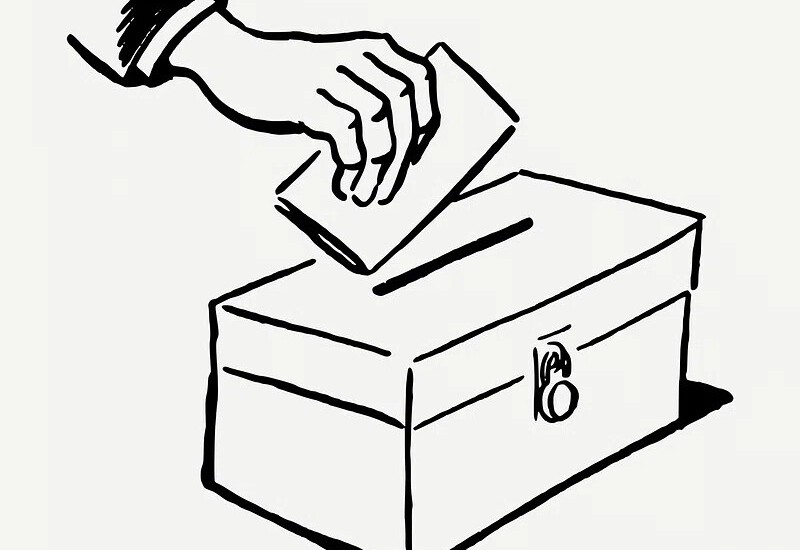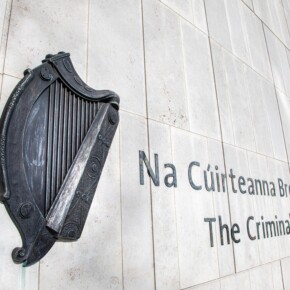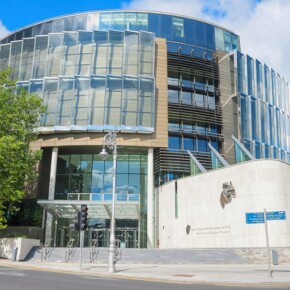What exactly are we voting for on March 8?
Mike Finnerty 28 Feb 2024
Ireland will go to the polls on March 8.
It will mark the first time the entire country has gone to the polls since the February 2020 general election.
Since then, only the residents of Dublin Bay South have had the chance to go to the polls while the rest of the country had to contend with watching opinion polls.
Based on the current public mood, March 8 will see a low turnout because the issues haven’t been clearly explained to the electorate and the issues themselves aren’t as dramatic or eye-catching as previous referendums (at least on the surface.)
In the Green Party manifesto for 2020, the party claimed they would hold a referendum on the right to housing should they get into Government.
Presumably, that promise got lost in the post or the Greens were explicitly told by Fianna Fáil and Fine Gael that holding that referendum would terribly upset their own voter base of homeowners.
In this scenario, the Greens were then presented with a Bullseye-style “look what you could have won” situation and were talked down to a referendum on family care and making language in the Constitution surrounding women more “progressive.”
These referendums don’t have the same pizzazz or emotionally charged language as the same-sex marriage referendum or the 8th amendment referendum in 2018; in fact, most people don’t even know what they are voting for on March 8.
Fear not, however; we are making a spirited attempt to explain what exactly is on the ballot this March.
In the most simple, plain English terms, voters will be asked if they want to expand the definition of family in Article 41.1 of the Constitution to recognise “durable relationships,” and voters will also be asked if they want to update the language in Article 41.2.1 and 41.2.2 to make the State “strive to” support care within families.
The vote on article 41.1.1 is the “Family” referendum while the vote on articles 41.2.1 and 41.2.2 is the “Care” referendum.
With the exception of Aontú, all of the political parties with elected reps have called for a “Yes-Yes” vote in the referendums (although as we will explain later on, there are some caveats.)
While there appears to be clear support for the Yes side on the Family referendum based on current polling, there is some ambiguity surrounding how people will vote on the Care referendum and implications that people are merely voting Yes without fully understanding it.
Some organisations such as the Irish Civil Liberties Union and Free Legal Advice Centres do not support the vote on Care.
Disability advocacy groups in particular have called for a No vote on the Care amendment on the grounds that the language proposed is too vague and does not significantly advance disability rights.
The ICCL said the Care amendment “will not provide meaningful legal protection to any person who gives or receives care.”
FLAC stated that a Yes vote on the Care amendment “is unlikely to provide carers, people with disabilities or older people with any new enforceable rights.”
They said that the wording that will appear on the ballot paper is not adequate to meet the needs of people, and in this context, people with disabilities.
“The wording is specifically limited to family care and does not relate to care in the community or in schools,” they stated.
“The amendment would give constitutional expression to harmful stereotypes such as the concept that the provision of care, including the care of older adults and adults with disabilities, is the private responsibility of unpaid family members without any guarantee of State support,” they said.
Sinn Féin leader Mary Lou McDonald said “Government have chosen to propose very minimal changes and the question for Sinn Féin is to support some change or no change at all.”
She said that should the votes fail and Sinn Féin gets into power, they would re-run the votes and follow the wording suggested by the Citizen’s Assembly in 2021.
The Citizen’s Assembly suggested inserting a new clause into Article 40 that would refer explicitly to gender equality and non-discrimination, make the Family text non-gendered and amend Article 41 so that it would protect private and family life, with the protection afforded to the family not limited to the marital family.
Labour Senator Marie Sherlock said the Care amendment was a “missed opportunity” and People Before Profit TD and European candidate Bríd Smith said the Care amendment falls “well short” of what is needed.
Sherlock stated “it is no secret that Labour has been very frustrated at the wording delivered by Government. It is our view that this is a missed opportunity to make a comprehensive commitment to care.”
Smith said that her party will be reluctantly voting Yes in the forthcoming votes, but she expressed concern that the amendments would not be backed up with any “firm commitment to the women, children and men who are the carers in our homes and wider communities.”
Independent Senator Tom Clonan has become one of the most prominent elected reps to call for a No vote on the Care amendment.
A long-term advocate for disability rights, Clonan wrote in the Irish Examiner “the wording of Article 42.B was drafted by a polity that is hostile to the rights of disabled citizens.”
“It gives constitutional expression to an ableist view that disabled citizens must rely on family members for care — and deliberately excludes the right to an independent, autonomous life in the community.
The Family vote is somewhat more clear-cut.
The Citizens’ Assembly on Gender Equality said that Article 40.1 of the Constitution should be updated to recognise that the traditional family unit that existed when the Constitution was first drawn up doesn’t reflect the reality of modern-day Ireland.
Statistics from Treoir, an organisation that provides support for unmarried parents with children in Ireland, said that 18% of families in Ireland are one-parent families and that there at 75,000 cohabiting couples with children in the country.
Those on the conservative side of Irish politics claim that should that particular referendum pass, it would erase the traditional definition of family.
Those campaigning for a No vote say that the Family vote passing would lead to problems when it comes to inheritance, taxation, or social welfare issues.
The Irish Freedom Party, which has no elected representatives at a local or national level, said that the Family vote is “too open to interpretation.”
They have claimed that a Yes vote “could also lead to the legal recognition of different types of durable relationships including for example throuples or polygamous groups.”
Aontú leader Peadar Tóibín said that Government are relying on “low knowledge, low interest and low turnout to get these amendments through,” calling the move “incredibly cynical.”
“Update the language of the constitution, for sure. But these amendments weaken families’ constitutional rights and insert definition-free terms with potentially massive consequences? I say vote No and No.”
An Taoiseach Leo Varadkar has rubbished those fears.
“The intention here is very, very clear — there are about a million people who currently live in families that are not based on marriage,” and said that lone-parent families and cohabitating couples as families would be recognised by the Constitution should the votes pass.
Tánaiste Micheál Martin said “a Yes to both of the proposals on March 8 will help to give us a constitution which is more reflective of who we are and what we value.”
“We believe that the amendments would mark an important statement of inclusion in modern Ireland and represent an important recognition of a process of change which has been ongoing for up to sixty years.”











